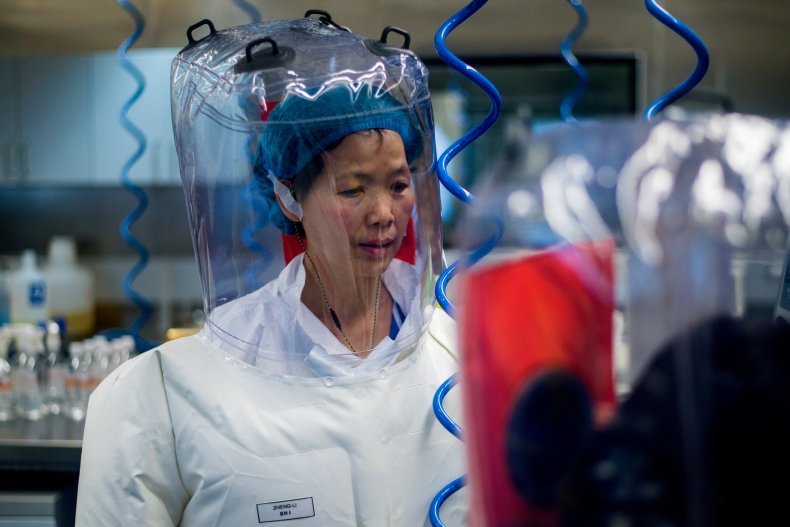China's 'Bat Woman' Has 'Nothing to Fear,' Says She Did 'Nothing Wrong' at Wuhan Institute of Virology
Dr. Shi Zhengli, a researcher at the Wuhan Institute of Virology who's at the center of the COVID-19 origin controversy, vehemently denied the lab is the source of the outbreak and isn't afraid of any investigations.
Shi, also known as the "Bat Woman" because of her long-standing research on bat coronaviruses, has been a target of those who believe the lab is the likely source of the outbreak. Members of Congress and former Trump officials have pointed to gain-of-function research being conducted at the lab as evidence of a potential leak, but Shi rejected she was conducting the controversial experiments.
"I'm sure that I did nothing wrong," Shi told The New York Times. "So I have nothing to fear."
Gain-of-function refers to research that involves taking pathogens and manipulating them to become more dangerous to humans in an effort to prepare for a pandemic before it happens. Senator Rand Paul has been a vocal critic of the research, calling into question whether the risk the research presents is worth the benefits, and was critical of a grant the lab received from the United States because he believed it was used for gain-of-function research.

Dr. Anthony Fauci, director of the National Institute of Allergy and Infectious Diseases (NIAID), denied the grant was intended to be used for gain of function research. When pushed as to how he knew it wasn't used for gain of function research, Fauci acknowledged he couldn't guarantee that the money was used for its intended purpose, but backed Chinese scientists as being trustworthy.
Shi told The New York Times her lab has "never conducted or cooperated in conducting GOF experiments that enhance the virulence of viruses." She argued that her experiments aren't gain-of-function work because she sought to understand how a pathogen might jump across species, not how to make them more dangerous.
Many have dismissed the possibility that COVID-19 originated in a lab but the theory has started gaining traction in Washington, D.C. Republicans have called for an investigation into the origin of the pandemic and the Intelligence Community hasn't ruled a lab out as a possibility. President Joe Biden requested the Intelligence Community "redouble" its efforts to find and analyze data that could yield a more definitive conclusion as to how the pandemic began.
China hasn't taken kindly to the investigation or skepticism surrounding the lab, calling it contrary to science. Officials have used a report from a team of researchers convened by the World Health Organization as an exoneration of its lab. The report was authored after the team visited Wuhan and it found the most likely origin of the virus was that it jumped from an animal to a human and the lab to be the least likely hypothesis.
However, Dr. Tedros Adhanom Ghebreyesus, director-general of the WHO, criticized the problems the team had accessing raw data and said further studies were needed to identify the origin.
Helping fuel support for an investigation into the lab is a report from The Wall Street Journal that said researchers from the lab were hospitalized with flu-like symptoms before China reported the first case of COVID-19. The Wuhan Institute of Virology has denied that any of its staff members ever had COVID-19, which would make it impossible for the virus to have originated in the lab.
Shi reiterated that the lab hasn't come across cases of people who were treated at the hospital and asked The New York Times to provide the names of the researchers so the lab can "check."
At the heart of the skepticism about the COVID-19 origin is China's clouded history with transparency. China suffered a blow after they were found to have covered up the SARS outbreak and the silencing of journalists and doctors did little to build international faith in the country's information sharing.
Fauci, having worked with scientists in China for decades, has defended them against attacks on their ability to be honest, separating them from the Chinese Communist Party.
"This is no longer a question of science," Shi told The New York Times. "It is speculation rooted in utter distrust."

